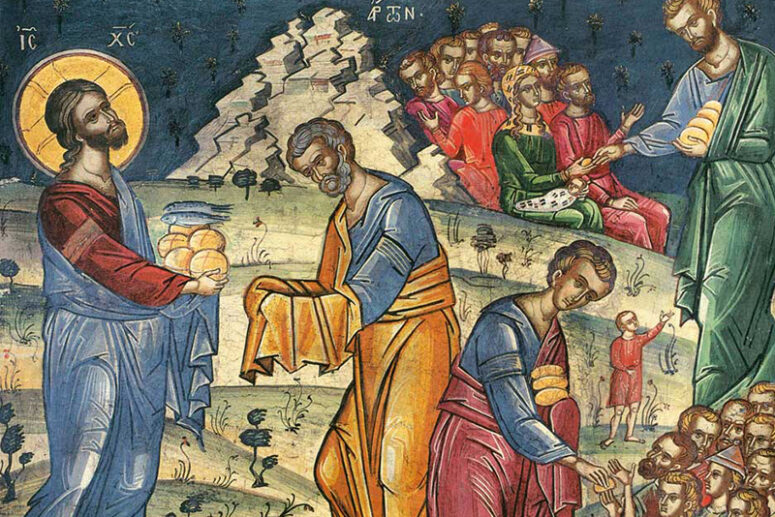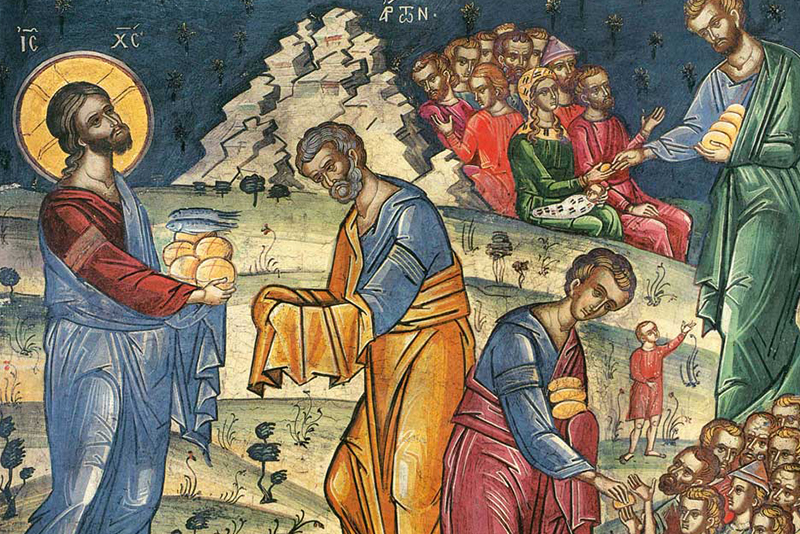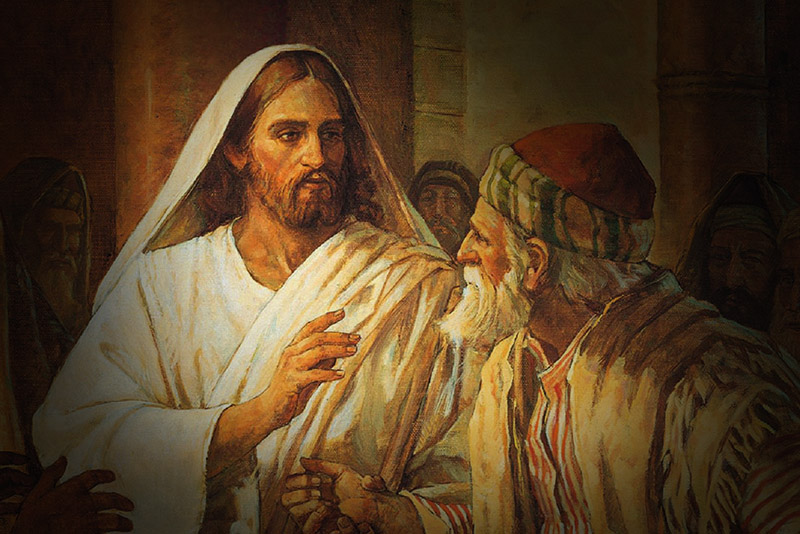
John 6:5–14 Acts 13:13–24
As we know from the Gospel, the Lord fed five thousand people who followed Him to the far shore of the Sea of Galilee. He took five barley loaves, gave thanks, and distributed to those who were seated as much as they wanted. Not only did the people had enough to eat, but they also bore witness to the Lord’s power; they – like us – experienced Him as the source of their hope. They also experienced His condescension to our human nature. He brought us the bread of everlasting life, but He also did not neglect to feed the people with the bread of this world. Clearly, he made distinctions between a voluntary ascetic and a hungry man who needed to be fed before he could absorb the Divine Truth. The Lord also teaches us to treat food with appropriate piety, like to treat His other gifts. He said, “Gather the pieces that are left over. Let nothing be wasted.” In the eyes of many biblical scholars, the five loaves of bread are reminiscent of the Five Holy Wounds which He had suffered for the redemption of our sins. In turn, the multiplication of the loaves augurs the infinite augmentation of the Body Christ that nourishes us at each Divine Liturgy.
We also read about the twelve boxes into which He instructed His disciples to gather the pieces of bread that were left over. Perhaps He was placing a small portion of the bread into the box of each Apostle for them to distribute among the people the ever-multiplying bread. Clearly, He was taking a risk – the people might take the Apostles for wonder-workers, and the Apostles might believe the same. He took care of it by challenging them with the question: “Where shall we buy bread for these people to eat?” Philip answered him, “It would take more than half a year’s wages to buy enough bread for each one to have a bite!” Andrew also discovered something: “Here is a boy with five small barley loaves and two small fish, but how far will they go among so many?”
These were exactly the answers that the Lord was waiting to hear. Firstly, he made it clear to His disciples that the task at hand was beyond all human capability. Secondly, he had them do everything that was in human power to feed the people. Finally, they all saw that this was very little. In fact, it was nothing. In effect, the Lord did not need helpers; he simply wanted people who would not stand in His way and through whom he could perform the entire task.
Let this truth guide us throughout our lives. In the face of a challenging task that begs the question, “Where shall we buy bread for these people to eat?” answer, as Philip did, “It would take more than half a year’s wages to buy enough bread for each one to have a bite!” Follow his example even if the task seems easy. Then do everything in your power; do your best to help, just like Andrew found the five loaves and two fishes. Be sure to remark, as he did, “but how far will they go among so many?” Do not neglect to say so, however magnificent your efforts may seem to you.
That way, you will make room for the Lord, and He will let you in as a partaker of His miracles, His might and His mercy.
Translated by The Catalogue of Good Deeds
Source: https://azbyka.ru/otechnik/Vyacheslav_Reznikov/propovedi-na-kazhdyj-den/5_4




